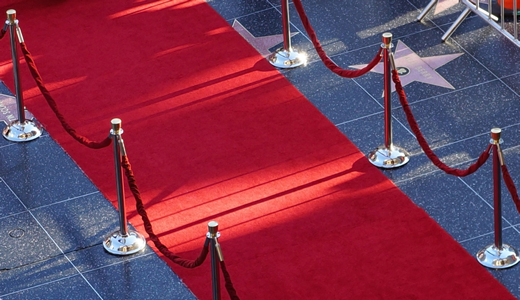We’ve all gotten used to waves of cancellations and delays due to the coronavirus. Now, on the cusp of Father’s Day, it’s impacted the daddy of all awards extravaganzas.
The board of governors for the Academy of Motion Picture Arts and Sciences announced that it’ll delay the Oscars by two months, pushing the ceremony from Feb. 28 to April 25. It’s not that the Academy necessarily believes that everyone will still be social distancing by that time (but hey, who knows?), but rather a response to an industry that has been completely upended. With theaters closed, film festivals scuttled and movie production halted, the Academy may be just trying to give Tinseltown a little bit of extra time to right the ship before handing out gold statuettes.
The Oscars aren’t the only awards ceremony to be making some changes, by the way. The Grammys have eliminated the word “urban” from most of its award categories (it makes a new appearance in its renamed Best Latin Pop or Urban Album category). Meanwhile, the Emmys just announced this morning that late-night host Jimmy Kimmel will be reprising his role as host for the third time. And while the Emmys broadcast is still scheduled for Sept. 20 as planned, the host himself expressed a bit of doubt.
“I don’t know where we will do this or how we will do this or even why we are doing this, but we are doing it and I am hosting it,” he said.
The Emmys may be still on schedule, but Anaheim’s annual Star Wars Celebration (planned for Aug. 27-30) has been cancelled for the first time in its history. That’s right, COVID-19 has proved to be a greater threat to Star Wars than even Jar Jar Binks.
Obviously, COVID-19’s not the only thing shaking up entertainment. Racial justice issues continue to cause their own waves. NASCAR has banned the confederate flag (which led to one driver quitting the NASCAR’s Truck Series). Country group Lady Antebellum has changed its name to Lady A (after apologizing to the blues singer whose name the group unintentionally stole). And some advocates are pushing Disney to rebrand its popular Splash Mountain ride. (The theme park water ride is based on Disney’s 1946 film Song of the South—a film so problematic that it’s been officially shelved by the corporation for decades.) So far the Mouse House hasn’t made a squeak about changing the ride, though.
Tech companies have stormed into issues of racial inequality and uneven law enforcement, as well. Amazon has pushed pause on its partnership with police using its facial recognition software—a pause that’ll last at least a year. “We’ve advocated that governments should put in place stronger regulations to govern the ethical use of facial recognition technology,” Amazon said in a statement posted to its website, “and in recent days, Congress appears ready to take on this challenge.” Meanwhile, a number of outlets have published tutorials on how people can use their iPhones to record interactions with police.
All this upheaval, as we’ve noted before, has stressed a lot of us out. A new poll from the University of Chicago found that we’re as miserable as we’ve ever been in the last 50 years. And most of that study was done before George Floyd’s death. The year’s been particularly hard on teens. Another survey (released late last week by America’s Promise Alliance) found that 52% of teens were “much more concerned” than normal about their health, 40% about their family’s finances and 30% about just basic needs. “These survey findings, in the context of current events, show that young people are experiencing collective trauma,” the study’s authors wrote.
Studies like those have caused some experts to wonder whether current events might impact teens’ mental health over the long term, while others are offering some cogent advice on how to help kids and teens through this difficult time.
But there’s good news on the mental health front as well—and it comes, oddly, in the form of a video game. Experts say that Akili Interactive’s adventure game EndeavorRx, which is designed to stimulate certain important neural systems, can help kids with ADHD. Indeed, the Food and Drug Administration is even recommending that it be prescribed now—just like a medication.
Finally, another quick reminder: Father’s Day is coming up. And while many are now racing to the Internet to order ties that most dads don’t even wear anymore, one father is giving us all a present: The skills to know how to do stuff, such ashow to tie a tie, fix a faucet and scads of other things that might fall under the realm of “adulting.”
Robert Kenney’s YouTube channel “Dad, How Do I?” isn’t particularly original, as Kenney himself admits. Do-it-yourself videos are all over YouTube. Kenney attributes his own YouTube success (his channel is now followed by more than 2 million people) to the fact that he talks with viewers like he would his own children.
“I get emotional,” when he reads some of the comments, Kinney tells ABC News. “I put out a video, and I basically just said, ‘I’m proud of you, I love you, God Bless you,’ and some comments said they’ve never been told that someone is proud of them.”
Everyone needs that affirmation every now and then. Maybe especially today.






Recent Comments